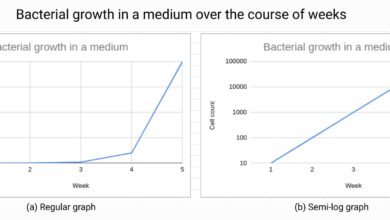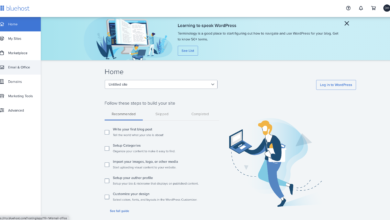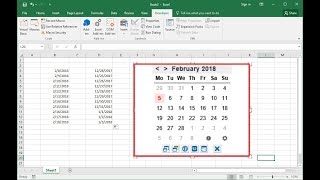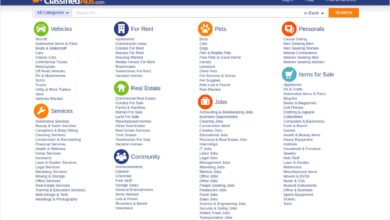Recruiting Column: How to build an effective college recruiting résumé

USA TODAY High School Sports has a weekly column on the recruitment process. This isn’t just about where the top five-star athletes go, it’s a guide to the process and pitfalls for student-athletes across the country from Fred Bastie, the owner and founder of Playced.com. Playced.com is an industry leader in college recruiting. Their technology-based recruitment service identifies the right colleges for potential recruits and their recruitment experts provide a recruitment experience backed by a money-back guarantee.
If you really want to pursue your sport at college, an organized, comprehensive College Recruitment Resume listing your athletic and academic qualifications/achievements will put you one step ahead of the competition. A well-designed resume makes it easy for a college coach to quickly decide if he or she is interested in you as a potential recruit.
Reading: How to create a college recruiting resume
At Playced, we value the importance of a quality recruitment resume that we are constantly updating our online version. In fact, we recently spent the better part of a month talking to college coaches across multiple sports about what information they would like to see. Based on those discussions, here are my thoughts on how to effectively create and distribute a quality recruitment resume.
What Your Resume Should Include
An Effective Recruitment Resume contains the academic and athletic information a college coach needs to make an initial assessment of whether or not you are a good fit for his or her program. There are a few ways to organize your resume, but any college coach would agree that it should at least include:
- Your personal information,
- Your academic achievements,
- Your athletic stats and awards and
- An easy way for a coach to check your stats and rate your skills.
Like For example, if you have a professional resume, consider dividing your recruitment resume into separate sections to keep the information organized. In my opinion, the four categories above could be your four sections.
The logical choice for the first section is your personal information. This should include your name, hometown, sport, primary position, email address, phone number and club/national team name. A simple profile picture doesn’t hurt either.
See also: How to start an online dating business
Your academic information could come next and should include high school name, graduation date, cumulative GPA, NCAA core course GPA, and desired major (if any ) contain. and your SAT and/or ACT score. By concisely summarizing your academic information, trainers can quickly determine if you are a good academic fit for their university. No matter how good an athlete you are, you must come to the academic admissions office if you want to play at any school.
The third section should contain your athletic information, and that might take a little thought. Every college coach evaluates potential recruits a little differently, and the important metrics and statistics are different for each position in each sport. For example, a corner infielder is rated completely differently than an outfielder, and a point guard is rated differently than a post.
You must include the stats relevant to your sport and position. If you’re not sure which stats and metrics are critical to you, do some homework. Ask your current coach for help and take a look at the recruitment questionnaires for your sport on the college websites you are interested in. A careful review of recruitment questionnaires will tell you what information college coaches are most interested in. Providing this information on your resume allows a college coach to make an initial assessment almost immediately.
In addition to your stats, the athletic section of your resume should include a link to your highlight video and your upcoming Schedule included. In order for a trainer to make a realistic initial assessment, he or she needs to watch the video. In fact, video is so important that you might want to include the link at the top of your resume. After they watch your video, your game plan will matter if they’re interested.
Finally, you need to include a way on your resume for college coaches to easily check your stats. In this section, provide your current trainer’s contact information. This is important as your current coach’s opinion of you can be crucial in your scholarship search.
You must make it easy for the coaches to make a quick decision or your CV will not even be considered. There is a fine line between too much information and too little. A one-page resume would be preferable if it leaves enough space to include all the important information.
Online or paper?
See also: Office Skills Blog
While an online resume can be helpful, don’t get bogged down in all the hype about college coaches who fill their rosters by “shopping” online for players. The most effective way to use an online resume is for you (the recruit) to share a link to your resume with the coaches you have identified as viable opportunities. Don’t hope that the right coach just happens to stumble across your online resume. That probably won’t happen.
If you prefer not to use an online CV, then don’t. You can use the recipe above to create your own recruitment resume. A well-organized “recruitment resume” that includes all relevant information, coupled with endorsement from your current coach, can be just as effective as any online option.
How to submit your resume to the The Right College Coaches
The best way to submit your resume to college coaches is simple. Send an email! If you created your own CV, attach it to the email. If you have an online resume, add the link. Just remember that your email must express a specific interest in that trainer’s program if you want them to pay attention. Taking the extra time to personalize your emails can make the difference between a trainer clicking delete or replying.
Show the trainer that you really care about them want to play and that you actually know something about his program. Mention something about your team, a recent accomplishment, or even that your Uncle Mel went to college there. Anyone can email a college coach, but the important thing is to get a response.

Finally, I believe you should copy every trainer on staff, who might have a say in recruiting you. For example, if you are a quarterback, email the recruiting coordinator and “cc” the offensive coordinator and quarterback coach (if applicable). You never know what coach might like what they see!
Here’s the deal
A recruiting Resume can be extremely helpful tool in finding the right college. Take the time to get it right, and then send it to the trainers at the colleges that make sense for your skill set.
See also: 12 Tips to Create a Compelling YouTube Channel Trailer (Examples)
.




